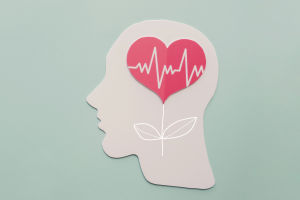When someone you love suffers a heart attack, it’s a mix of emotions: relief that they survived, but also the emergence of new worries.
Whether it’s your father, partner, or sibling, you may feel the overwhelming need to step in and do everything possible to help them recover.
But experts emphasize that it’s okay to acknowledge your own feelings and struggles during this challenging time.
Don’t Hide Your Own Emotions It’s natural to want to shield your loved one from additional stress or burden, and many relatives suppress their fears and concerns for the patient.
However, this can unintentionally lead to emotional distance. German heart specialists, cardiologist Christoph Herrmann-Lingen and psychologist Jonas Nagel, stress the importance of being open about your feelings. Suppressing worries may create barriers that make it harder to provide the necessary emotional support.
Look After Yourself First Taking care of yourself should be your top priority. Check in with your own emotions: Are you feeling afraid, overwhelmed, or frustrated? Acknowledging these feelings is crucial for your mental well-being and will allow you to express them more clearly.
Doing so helps you maintain an open dialogue with the person who has had the heart attack. Honest conversations about your emotions will not only help you both understand each other better but also prevent misunderstandings.
Communicate Openly Taking the first step toward an open discussion may feel difficult, but it’s worth it. Setting aside time to talk—perhaps through a family meeting or a calm conversation—can foster better communication and help you both navigate the situation with clarity.
Being transparent about your emotions and encouraging the patient to share their feelings will strengthen your relationship and make it easier to find solutions to challenges you both face.
Recognize When You Need Extra Support If you or other family members feel like you’re running out of strength or becoming overwhelmed by anxiety, it may be a sign that mental health support is needed.
Conditions such as depression, anxiety, or post-traumatic stress disorder (PTSD) can develop under stress. If this happens, don’t hesitate to reach out to a family doctor for an assessment and guidance on how to move forward.
Involve the Family in the Recovery Process Including family members in the recovery journey is essential. Cardiac rehabilitation programs, for instance, provide opportunities for the whole family to discuss how to handle the new normal together.
Working through these changes with the support of loved ones will not only aid the healing process but also strengthen the emotional bonds between you and the person recovering.
In summary, helping a loved one recover from a heart attack requires more than just physical assistance—it involves emotional support, open communication, and self-care.
By acknowledging your own feelings and seeking help when needed, you’re better equipped to support your loved one through their recovery while also looking after your own mental health.
How to Help Someone Experiencing Cardiac Arrest | UPMC Minutes Matter
Video by UPMC


